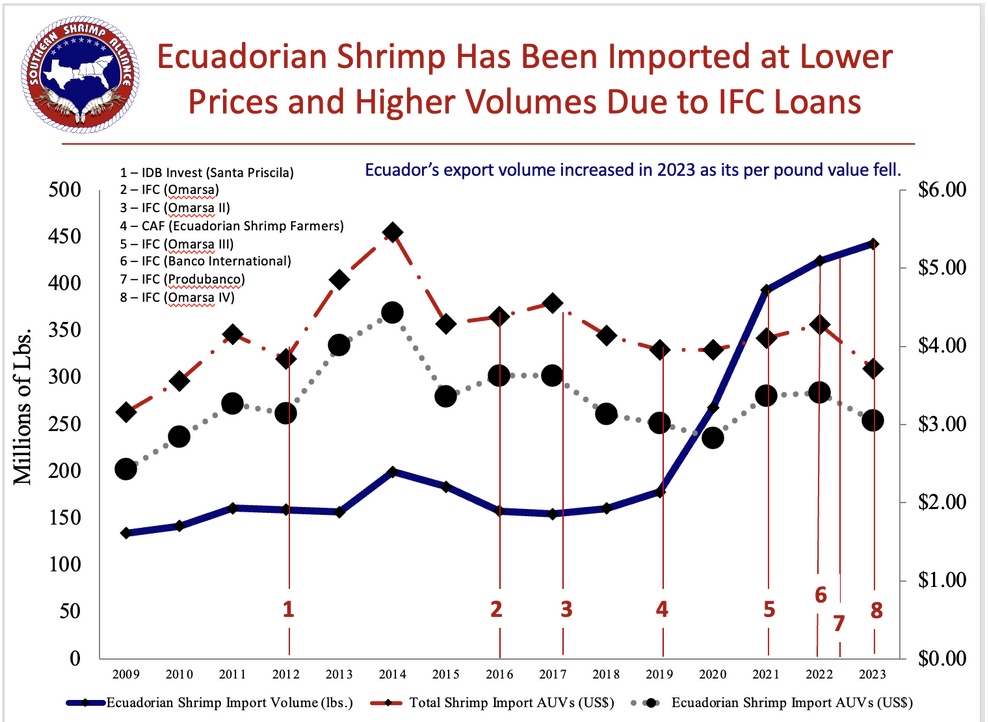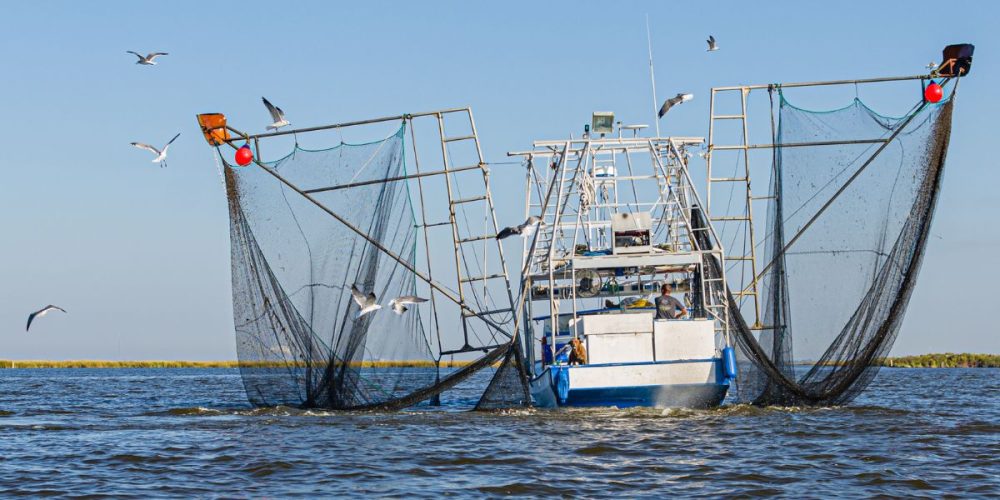Congressman Troy Nehls believes American money is being used to endanger America’s shrimping industry and he wants to put a stop to it through the Save Our Shrimpers (SOS) Act.
“Our American companies are trying to compete with this shrimp coming in from Ecuador, and it’s just killing the prices,” Nehls (R-TX) noted.
He said he heard from fishermen across his district and the entire Gulf region who told him they are no longer sending out shrimping crawlers because foreign competition has driven prices too low and inflation has driven expenses so high that it is no longer profitable.
“Our American shrimpers are being squeezed to the point that they’re going to lose their businesses. And many of these businesses are second, third, fourth generation,” he added.
This issue, which has been widely reported in fishing outlets, has reached such a proportion that many now believe it is existential for the industry. Five Texas counties have issued disaster declarations over the peril their local shrimping industries are facing, the Texas Observer reported.
“If you don’t do something to help us, it’s over for us,” Nehls recalls being told.
He also identified India as a place producing much of the product that has crashed shrimping prices to just a few dollars per pound in recent years.
Part of the reason India and Ecuador are able to do this, Nehls says, is because of significant financial backing from places like the International Monetary Fund and the World Bank, which are U.S.-supported. He said he believes the international bodies are using American taxpayer money to develop shrimping industry projects overseas.
“[The IMF and World Bank are giving money] to these countries money to help with these shrimping companies over there to just kill our own industry,” he said, “It makes no sense.”
He contends that this not only gives foreign competition a market advantage but also an opportunity to skirt health, safety, and labor standards.
With Congress now back in session after its summer break, Nehls said he would like to see the Save Our Shrimpers Act of 2024 passed. A description of the legislation available on Congress’ website says the bill is intended “to prohibit Federal funds from being made available to international financial institutions for the purposes of financing foreign shrimp farms, and for other purposes.”
Its author believes this could be done by requiring an investigation and annual report by the U.S. Government Accountability Office on whether executive directors at U.S.-backed international financial institutions have complied with their responsibility to oppose financing foreign shrimp farming, processing, and exporting industries.
It would likewise charge the Treasury Department with abiding by other federal laws like 22 U.S.C. § 262h, which is supposed to prevent international financial institutions from supplying “assistance for production or extraction of export commodities or minerals in surplus on world markets.”
Nehls’ concerns are shared by the Southern Shrimping Alliance (SSA).
“American shrimp boats aren’t tied up at the docks due to free market principles. Redirecting taxpayer dollars to fund our competition through multilateral banks is sinking our industry,” John Williams, executive director of SSA, said in a sheet of information the organization emailed to The Dallas Express.
Regarding Ecuador, the SSA added some stark figures.
“Multilateral development banks have funded at least eight significant projects in Ecuador to increase shrimp production since 2012,” the sheet reads. “These projects eventually resulted in a surge of Ecuadorian shrimp imports into the United States, with an increase of over 50 percent (90 million additional pounds) between 2019 and 2020, and another massive increase of 47 percent (125 million additional pounds) between 2020 and 2021.”
“As the U.S. shrimp market hit a saturation point in 2022, U.S. import volumes of Ecuadorian shrimp continued to grow in 2023, even as the prices for these imports declined,” it added.

Attached was a table that SSA says showed how [international finance corporation] loans have distorted the shrimping market.
Nehls says his bill has garnered bipartisan support from Gulf state Republicans and Democrats. It now sits before the Committee on Financial Services awaiting consideration.
Nehl’s full exchange with The Dallas Express, including the reasons why he wants to see Donald Trump elected president in November can be seen on the Cowtown Caller podcast.


